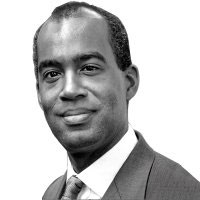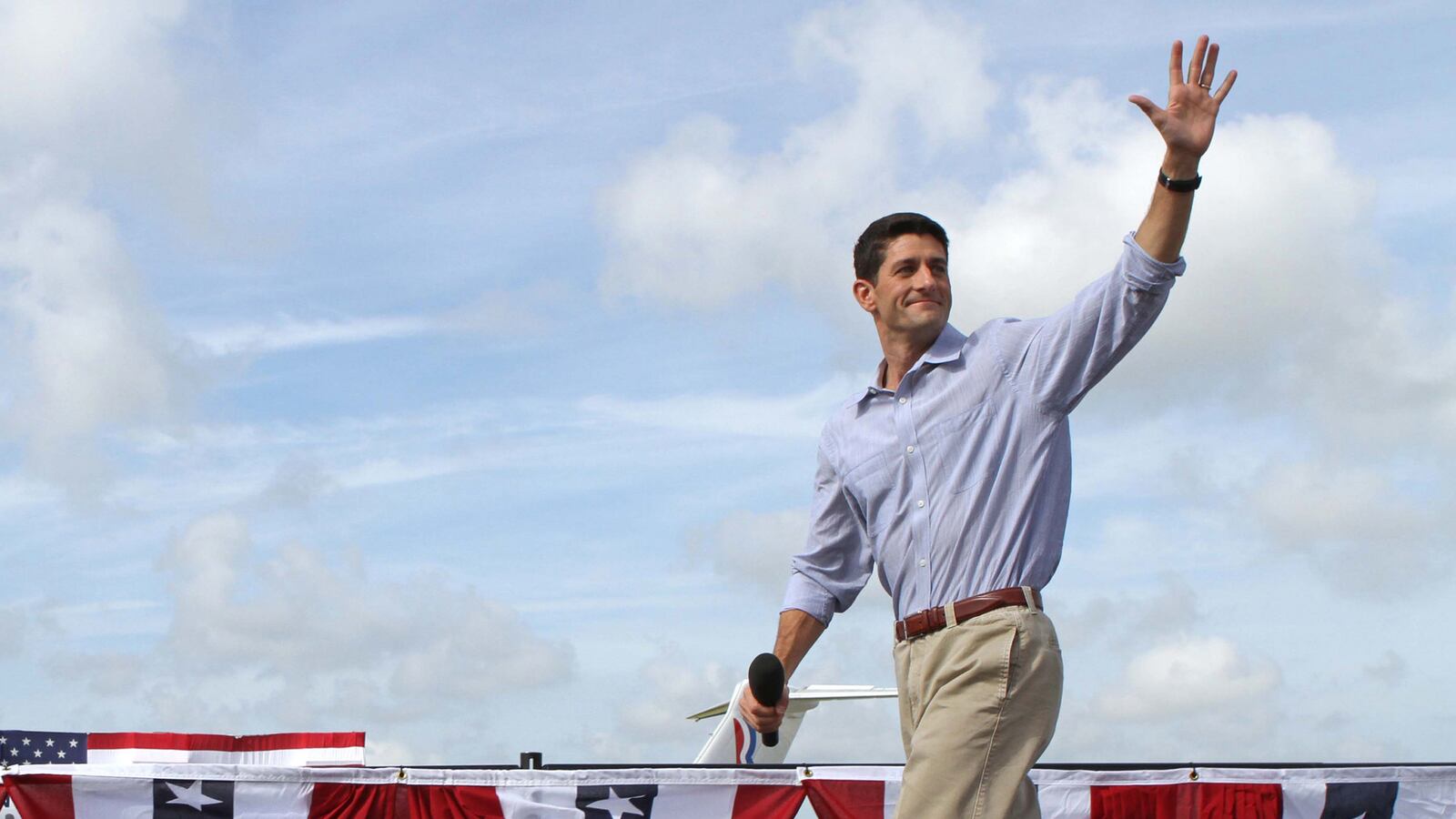House Budget Committee Chairman Paul Ryan’s just-released The Way Forward is sure to fuel speculation about his possible presidential ambitions. And while the book is worthy of praise for its candor, insight, and novel policy ideas, Ryan still manages to stumble just a bit when it comes to matters of race.
First, the good parts. Those looking for a behind-the-scenes look at the Romney-Ryan ticket in 2012 will not be disappointed. Ryan fluidly weaves his experience on the campaign trail with Mitt Romney as he discusses the problems that vex America, as well as his thoughts on how best to fix them.
Ryan’s reflections on President Obama’s invitation to join him at George Washington University, where the president received the recommendations of the Simpson-Bowles Commission to rein in entitlement spending, are also noteworthy. Ryan says he thought Obama had brought him to the event to pursue a bipartisan path forward, but was was shocked when the president savaged his proposed budget blueprint. Of Obama’s speech that day, Ryan writes: “His false attacks were offensive, even by the low standards for discourse and civility in Washington, D.C.…This is who he is, I thought. Savage defense. Demagogue Republicans. Don’t triangulate. Don’t moderate. Go all in.”
“Paul, I’m so sorry,” Ryan reports Clinton White House Chief of Staff Erskine Bowles, co-chairman of the president’s own entitlement reform commission, said after the event. “I’m ashamed of what just happened. I cannot believe the president just did that. I apologize. That was reprehensible behavior and I’m ashamed of it as a Democrat.”
The Way Forward also touches on many of the challenges we face concerning the national debt and the urgent need for entitlement reform, an issue that many in Washington are unwilling to touch. He ably describes the public policy disaster that is Detroit as an example of what happens when big government liberalism runs amok, and spends much of the first half of the book comparing the Motor City to his comparatively idyllic hometown of Janesville, Wisconsin.
Still, Ryan opens himself up to needless criticism when he writes how Republicans can make inroads with communities of color. I’ve long defended Ryan from people who say he’s some kind of dog-whistling racist who doesn’t care about people of color. Having been his friend for more than 20 years, I know that nothing could be further from the truth. And yet when Ryan discusses his early efforts to reach out to the black community in his home district, which he did mostly by going to predominately black churches, I couldn’t help but wince.
“It’s a different deal at a black church, of course,” Ryan observes. “And if anyone’s faith ever needs perking up, that’s the place to go. I always tried to get into the spirit of things with dancing, clapping, and singing out in the pews. It was a small mercy in 2012 that no videotapes of my dancing ever surfaced.”
Of course Ryan should meet with his constituents, but come on, Paul. The fact is, many people will question your sincerity if you just keep going to black churches in search of black votes. When I worked for President Bush and Vice President Cheney, I offered them both a simple message which I know they both took to heart: Don’t treat black people like black people. Treat them like concerned citizens worried about jobs, their children and the future of the country. The minute you start showing up in churches and talking about welfare and the like, you sound as if you are talking down to people based on the color of their skin.
This is where I give Ryan his due: He admits he still has much to learn after 15 years of listening to people who don’t look like him. “For a long time, the Republican Party just didn’t engage these communities [of color],” Paul notes, correctly. “Earning support is going to require a long-term commitment to a conversation about the principles and policies. We can’t just parachute in for a photo-op before an election. The only way to generate respect and a better understanding of our motives and ideas is to keep visiting and talking and opening the lines of communication.” Precisely.
So who is the real Paul Ryan? Is he the fiercely conservative Chairman of the House Budget Committee, or the poverty crusader talking about issues that Republicans have long ignored?
The answer, of course, is complicated. Ryan lost his father when he was a sophomore in high school. His father, who Ryan found dead in their home, was just 55 years old. This turned a young teenager into a man far earlier than he would have liked.
I believe there are two people in Ryan’s life that helped fill the void left by his father. The first is former Congressman Jack Kemp, whom Paul worked for in Washington. The other is Robert Woodson Sr., a civil rights activist who runs the Center for Neighborhood Enterprise. And while the congressman’s relationship with Kemp is well known, his tutelage at the hands of Woodson is not.
Paul and I were both close to Woodson’s son, Robert Woodson Jr., when we all worked on Capitol Hill together. Woodson Jr. was 40 years old and serving as the chief of staff at HUD during the George W. Bush administration when he was killed in a car accident.
Both Woodsons were civic and community activists. For decades, Woodson Sr. has mentored Paul on how on how government dollars impact people in the communities they live.
Woodson and Ryan have traveled the country together to meet struggling Americans and ask how the government can become more responsive to their needs. Just a couple months ago, I joined a group of black journalists at a briefing hosted by Ryan and Woodson where the two discussed their efforts to eliminate poverty in America. And I witnessed this group of journalists, who entered the room skeptical about Ryan’s sincerity, leave with a newfound level of respect and appreciation for the man. Ryan’s book goes into detail about his work with Woodson in a way that illustrates the congressman’s passion about poverty. It’s an issue that he’s cared deeply about for decades, and not some convenient political pivot.
The Way Forward is refreshingly candid in detailing Ryan’s personal evolution as a politician while offering insight in how much he is guided by his love of family and his faith. And given his wonk-like zeal for numbers and fixing our failing entitlement system, I would bet he’s angling to become the next chairman of the Ways and Means Committee rather than the next president of the United States. At the same time, given both the timing of it release and its content, I wouldn’t be surprised if Republicans see this book as a glimmer of hope, and beg him to run for the White House in 2016.






